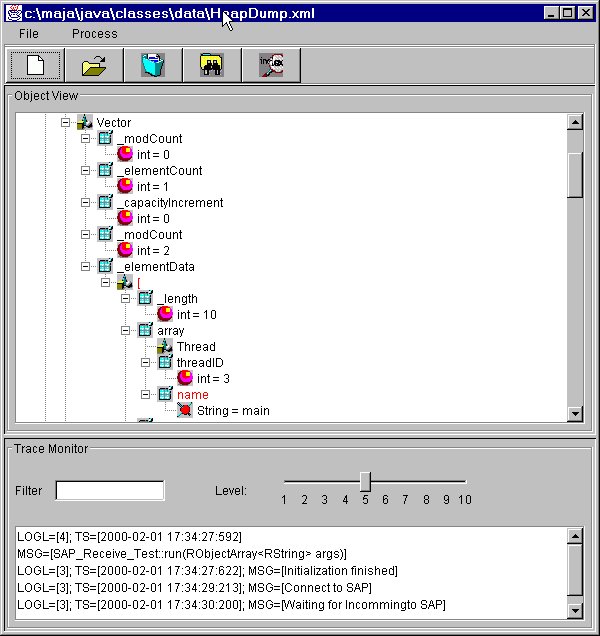|
| Introduction | Features | History | Comparison | Java Conformance | Library | ACDK DMI | Framework | Method | Standard |
ACDK as a framework for server applications is clearly laid out on a stable and comfortable server environment concerning its quality.
- Hierarchic properties (Environment, INI-Data, Registry, Headings)
- Persistent service for the serialization of server objects.
- Installment of ACDK-processes as Unix-Daemon or NT-Service.
- News groups for the (Remote-) Control of processes.
- Log service with optional integration into the System Log mechanism (syslog, event-viewer)
- Trace-Monitor for announcing, recording, passing on, and archiving Log news.
- Process-Messenger for supervising and controlling processes or processing groups.
- Object-Explorer for the advertisement of certain or all-running structures of a process.
It is also possible to change object variables externally during runtime.

Process Management Console
One can adapt different strategies for the saving-management of different runtime situations in a server
process. For example: Bulk Memory, Garbage Collecting, Reference Counting, and Shared Memory.
- There is access to all typical databases (Oracle, Informix, MS SQL, MySQL) with the ACDK Database Connector (MDBC). Index services like LDAP and NDS) can be integrated.
- A communication with the SAP-System can be established through RFC calls and the IDOC format.
- Distributed applications like CORBA (Visibroker, ORBacus or other ORBs) will be possible through a mapping of ACDK-Objects similar to Java.
- The implementation of an embedded ORB is provided for the purpose, so that the programming of the CORBA-components will take place directly in ACDK.
- One can communicate with Java-components inside the intra- or Internet using the Java-RemoteMethodInvocation (RMI).
|


 Framework
Framework
 Configurations Management
Configurations Management
